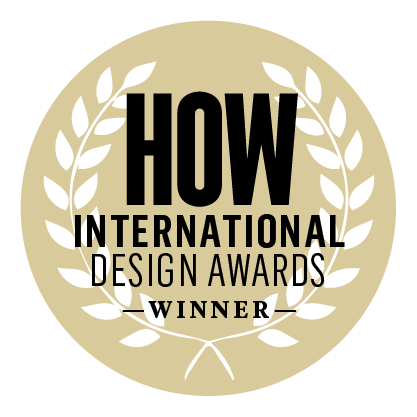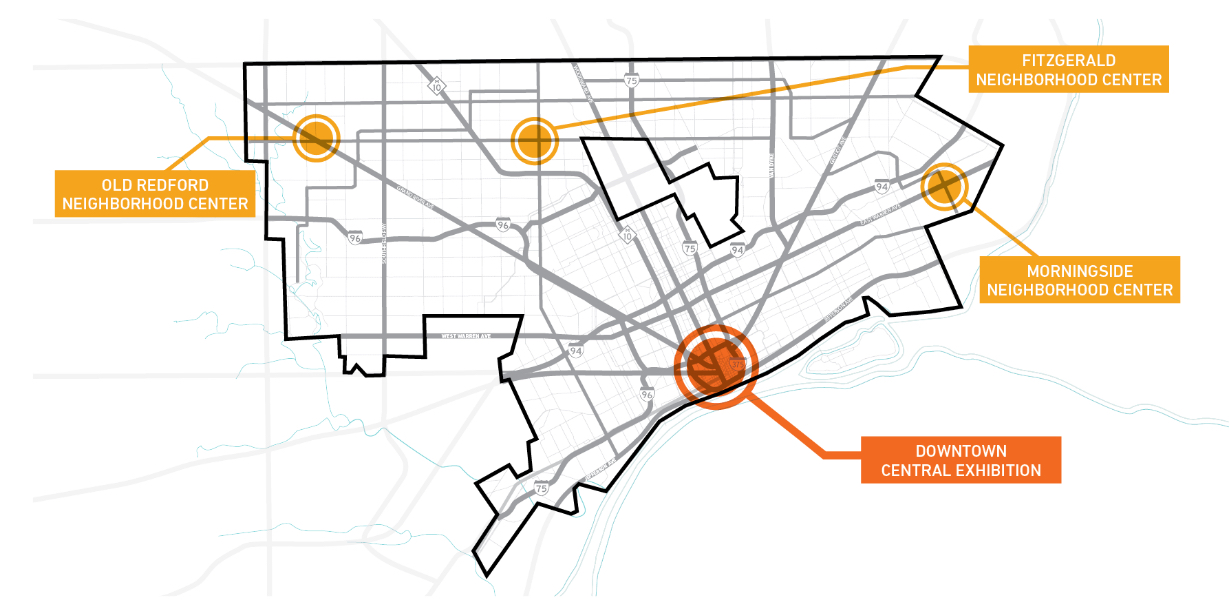Detroit Design 139
INCLUSIVE FUTURES
AUG 31 - SEPT 30, 2019
As the nation’s only UNESCO City of Design, Detroit has a unique opportunity to utilize inclusive design in order to create a more equitable and sustainable future for both our city and those around the world. By prioritizing diverse experiences, accessible opportunities, and collaborative relationships, Detroit will show how inclusive design develops goods, systems, services, buildings, communities, and urban spaces that work for everyone.
Throughout history, cities have been shaped by significant design decisions made by a few, for the many. These design solutions were meant to solve issues relevant to a city’s specific time period and were often made by experts without meaningful input from the people impacted by these plans. As a result, urban design solutions have often resulted in unintended consequences for subsequent generations. This repetitive cycle of top-down design outcomes – divisive highway infrastructure, failed public housing, anti-pedestrian streetscapes and under-utilized public parks – can be found in cities around the world.
In response to the vision laid out in Detroit’s UNESCO City of Design Action Plan, Detroit Design 139 proposes that through inclusive design, Detroiters (designers and non-designers alike) can prioritize the importance of both PROCESSES and OUTCOMES for all future projects throughout Detroit’s 139 square miles. Through exhibitions, events, and shared conversations, we will explore inclusive design strategies that break this repetitive cycle of creating future problems by acknowledging all aspects of our shared history in order to solve long-standing urban issues. With this approach, we will focus on creating multi-generational design solutions that result in INCLUSIVE FUTURES for everyone.
2019 How International Design Award Winner

Detroit Design 139 was recognized as one of the 226 award-winning designs from around the world to exemplify high-level design.
Neighborhood Locations
The 2019 Detroit Design 139 exhibition is expanding its outreach with a central exhibition in Downtown Detroit, and neighborhood locations within three Detroit areas. In each of these spaces, Detroit Design 139 will highlight projects that help solve community issues through design. In addition, each exhibition space will feature programs that serve to facilitate neighborhood design conversations.
Downtown Detroit
1001 Woodward
Woodward Ave
Detroit, MI 48226
Old Redford Neighborhood
Motor City Java House
17336 Lahser Rd
Detroit, MI 48219
Fitzgerald Neighborhood
Neighborhood HomeBase
7426 W McNichols Rd
Detroit, MI 48221
Morningside Neighborhood
Alger Theater
16451 E Warren Ave
Detroit, MI 48224

Exhibition Focus Areas
In September 2019, Detroit Design 139 will showcase inclusive design projects, policies and concepts throughout the built and natural environments of Detroit and other UNESCO Cities of Design. The program will be structured around five focus areas that emphasize learning from the past in order to inform a successful approach to the inclusive design process. Each focus area will consider the entire spectrum of human diversity and individual experiences – in the past, present and future – but with dramatically different outcomes.
Public Space
How do we design inclusive public space, regardless of scale? What does inclusive and accessible public space look like? What activities are offered in those spaces? These projects will demonstrate the importance of public space as an inclusionary network within and throughout the city.
Economy
What is the role of design in a more inclusive economic future? Where should these economic centers be located to provide the most opportunity for all? What are the new design models for economic development? These projects will spark discourse on the current and future design trends for economy-based space.
Neighborhoods
What does a more inclusive future offer our communities? Is it possible to live, eat, shop, work, learn and relax within the same neighborhood? How can we design new residential developments without displacing current residents? These projects will explore strategies for inclusive neighborhoods that integrate diverse living options, neighborhood retail opportunities, walkable streets and welcoming public spaces.
City Systems
How do we develop inclusive systems, services and infrastructure for our future city? How do we make the most of our shared urban assets while planning for a more sustainable future? How do we make it easier for people to move freely, safely and efficiently throughout our city? These projects will look at the visible (and invisible) inclusive infrastructure projects that will bring people, neighborhoods, industries, places and things closer together in a cohesive future urban environment.
Housing
How do we design inclusive housing? How do we make it affordable and sustainable? These projects will consider the future of housing, changing lifestyles and inclusionary growth.
Need More Information?
Download the full abstract for additional information on the INCLUSIVE FUTURES exhibition.







